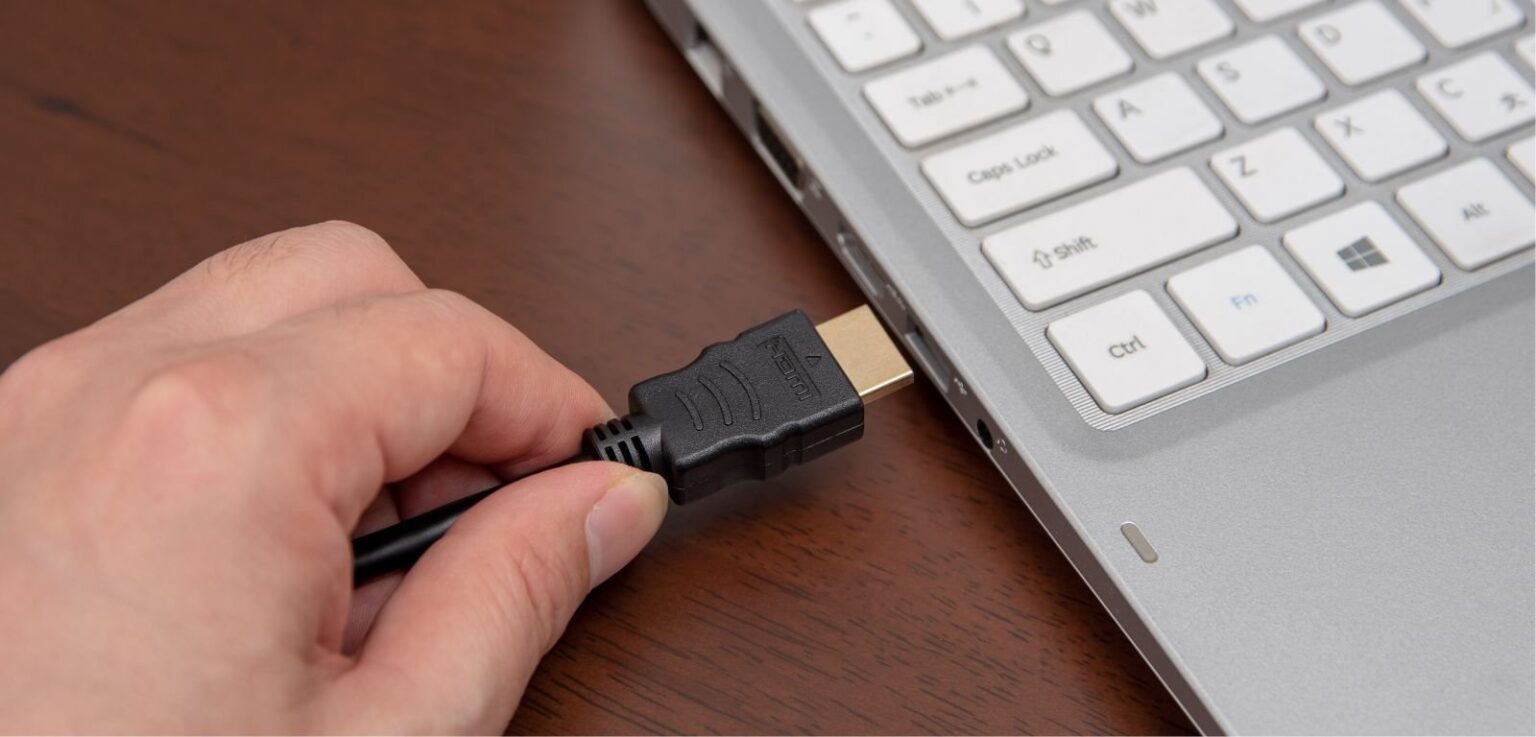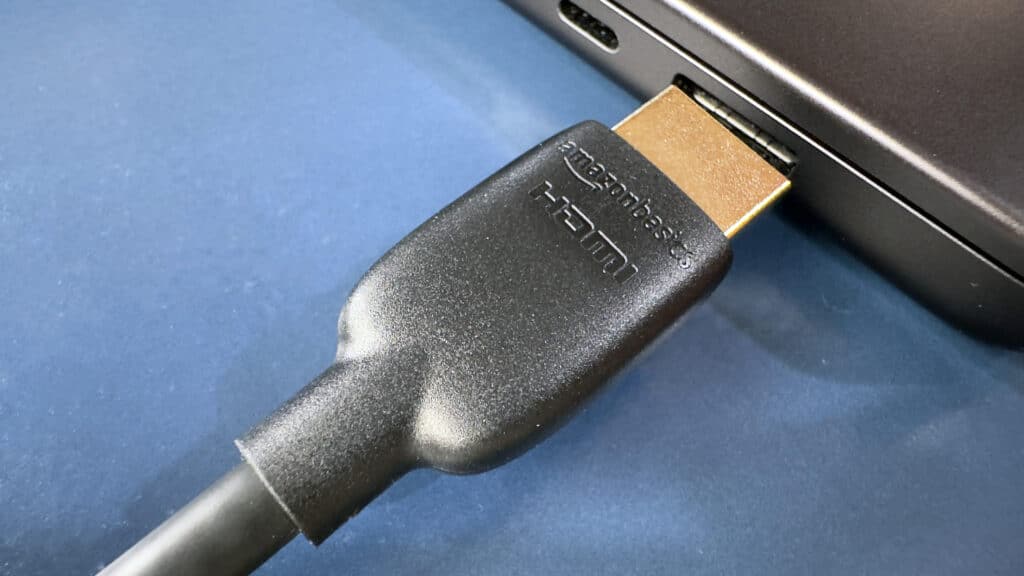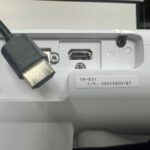Connecting my laptop to a projector is a game-changer for presentations, movie nights, or even teaching sessions. When I use the right HDMI cable for laptop to projector, it makes all the difference—delivering crisp video and clear audio without any hassle. In this guide, I’ll walk you through everything I’ve learned about HDMI cables, from choosing the best one to making sure your setup runs smoothly. Plus, I’ve answered some of the most common questions along the way to make things even easier for you.
Why Use HDMI Cable for Laptop to Projector?
An HDMI (High-Definition Multimedia Interface) cable is the go-to solution for connecting laptops to projectors. Here’s why:
- High-Quality Video and Audio: HDMI cables transmit both high-definition video and multi-channel audio, providing an excellent viewing and listening experience.
- Ease of Use: HDMI is a universal standard, so it’s compatible with most laptops and projectors.
- Simple Connection: With HDMI, you don’t need extra adapters or cables—just plug it in, and you’re ready to go.
How to Choose the Best HDMI Cable for Laptop to Projector?
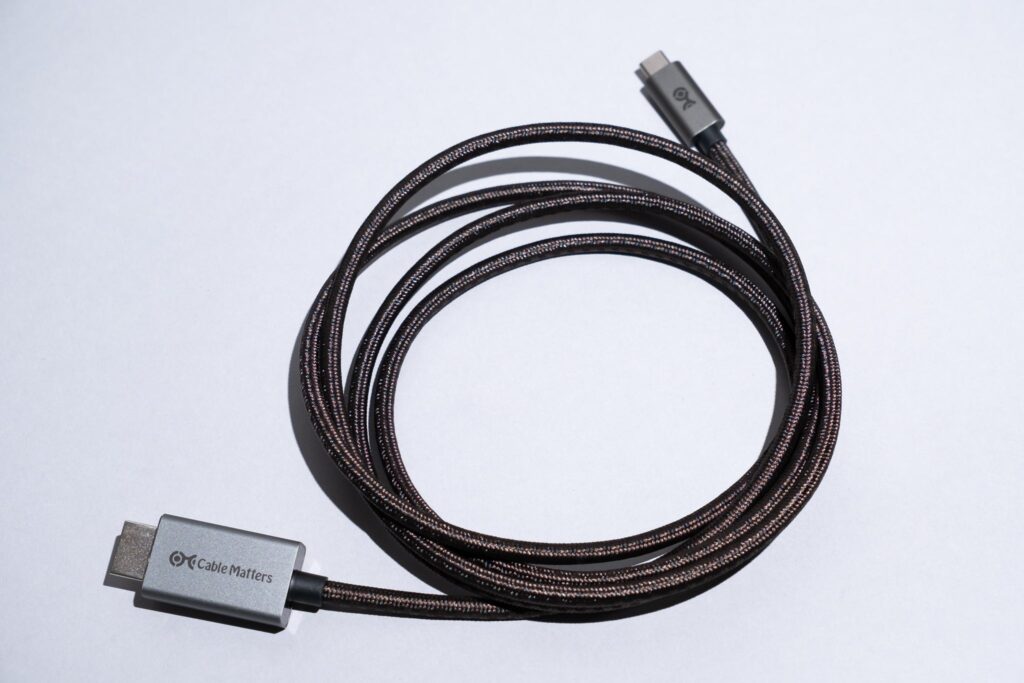
Credit: nytimes.com
Selecting the right HDMI cable is crucial to ensure the best performance. Here are some factors to consider:
Max Length of HDMI Cable for Laptop to Projector
The max length of HDMI cable for laptop to projector can vary. The standard HDMI cable length is typically 3 to 6 feet, but longer cables can go up to 25 feet or more. However, keep in mind:
- Signal Loss: Longer cables can result in signal degradation. If you need a cable longer than 10 feet, look for a high-quality, shielded HDMI cable.
- Active HDMI Cable: For lengths beyond 25 feet, consider an active HDMI cable with built-in amplifiers to maintain signal strength.
Connector Cable for Laptop to Projector
When choosing a connector cable for laptop to projector, ensure the following:
- HDMI-to-HDMI Connection: This is the most common type of connection between modern laptops and projectors. Check that both your laptop and projector have HDMI ports.
- Compatibility: Some laptops may require a mini HDMI or USB-C to HDMI adapter. Ensure the cable or adapter is compatible with your device.
Best HDMI Cable for Projector to Laptop
The best HDMI cable for projector to laptop combines durability and performance. Look for these features:
- High-Speed HDMI Cable: This supports higher resolutions (up to 4K) and ensures smooth video playback.
- Gold-Plated Connectors: These improve the signal quality and prevent corrosion.
- Flexible and Durable Design: Opt for cables with reinforced connectors and flexible insulation to avoid wear and tear.
How Do You Connect a Projector to Your Laptop?
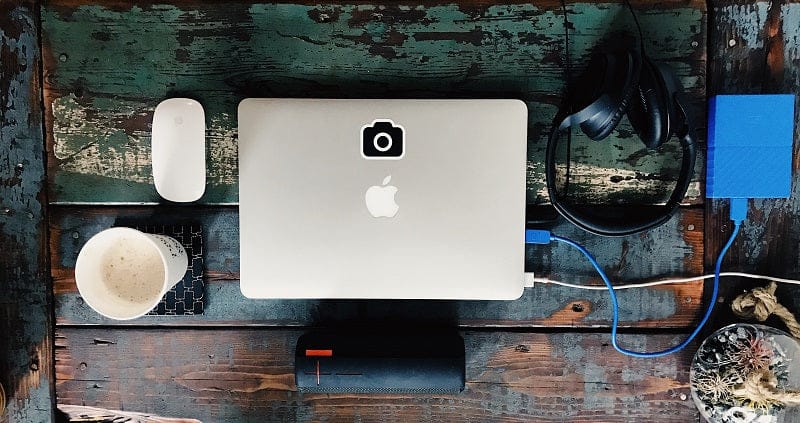
Credit: us.xgimi.com
To connect a laptop to a projector, follow these simple steps:
- Plug in the HDMI Cable: Connect one end of the HDMI cable to your laptop and the other end to the projector.
- Select the Correct Input: Turn on the projector and set it to the HDMI input mode.
- Adjust Display Settings: On your laptop, press Windows + P (or Cmd + F1 for Mac users) to choose the display mode (duplicate, extend, or second screen only).
- Adjust Resolution (if needed): For better quality, set the laptop’s screen resolution to match the projector’s native resolution.
For interactive projectors that can engage your audience, check out this guide on interactive projectors.
Projector Adapter for Laptop
In case your laptop doesn’t have an HDMI port (common in some ultrabooks), you’ll need a projector adapter for laptop. Here are some options:
- USB-C to HDMI Adapter: For newer laptops with USB-C ports, this is a great solution to connect to a projector via HDMI.
- VGA to HDMI Adapter: If your laptop only has a VGA port, this adapter will help bridge the gap between the older VGA and HDMI.
Check out the best projectors for events if you are looking for a projector for a large-scale event.
Price Range for Projector Cable for Laptop
Credit: zdnet.com
The price of a projector cable for laptop can vary based on length, quality, and brand. Here’s a rough estimate:
- Standard HDMI Cable (3-6 feet): $10-$20
- Longer HDMI Cable (10+ feet): $20-$40
- Premium HDMI Cable with Additional Features: $40+
The price may also vary depending on whether the cable includes special features like gold-plated connectors or support for 4K resolution.
Frequently Asked Questions
Here’s a look at the most common questions about connecting a laptop to a projector:
Can you connect a laptop to a projector wirelessly?
Yes, many projectors support wireless connections via Wi-Fi or Bluetooth. However, an HDMI cable is the most reliable connection.
What cable does a projector use?
Most projectors use an HDMI cable for high-quality video and audio. Some older models may use VGA or USB cables.
What cable to use for laptop to projector?
An HDMI cable is the most common choice. If your laptop has different ports, you may need a USB-C to HDMI or VGA to HDMI adapter.
How do I know If my projector Is compatible with the laptop?
Check the ports on both devices. If both have HDMI ports, you can use an HDMI cable. If not, you may need an adapter.
Can I use a projector for presentations with my laptop?
Yes, projectors are perfect for presentations. Simply connect your laptop via HDMI for a smooth, high-quality display.
The Bottom Line
Choosing the right HDMI cable for your laptop to projector connection is key to ensuring a smooth, high-quality experience—whether you’re giving a presentation, enjoying a movie night, or hosting an event. Whether you’re looking for a basic connector cable for laptop to projector or searching for the best HDMI cable for projector to laptop, this guide has got you covered. And don’t forget—there are plenty of wireless options and adapters out there to take your projector setup to the next level!


